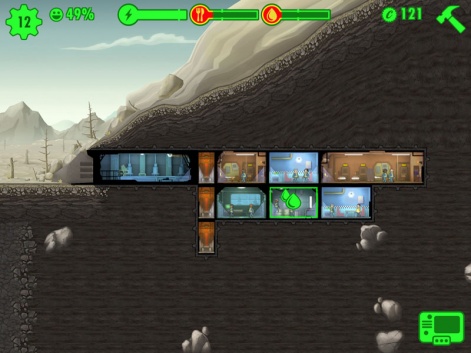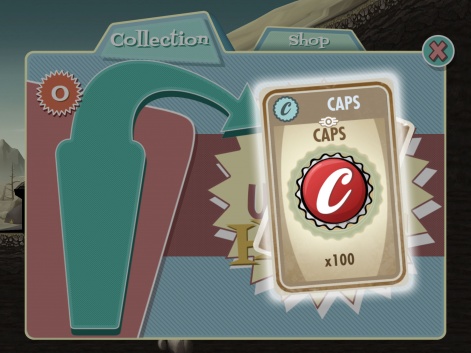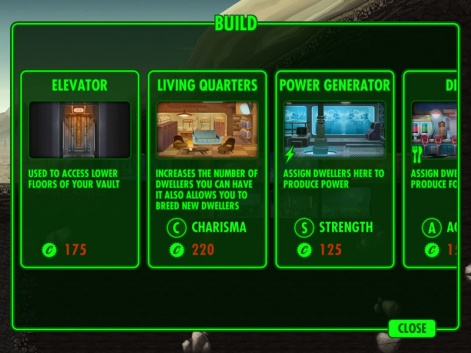Welcome back to the In-App Purchase Inspector - our regular look at free-to-play games from the consumer's perspective.
In each instalment, we consider the incentives or pressure applied to make in-app purchases, their perceived value, the expansion offered by IAPs and the overall value of the experience.
The end goal is to see whether the game makes a good enough case for us to part with our cash, or whether players are content - or engaged enough - to freeload.
This time, we're taking a look at Bethesda's Fallout Shelter, a resource management offshoot from the Fallout franchise that's complete with post-apocalyptic environments and subterranean survivors.
Welcome to the vault
Some information on the thinking behind Fallout Shelter is probably important to start off with, just to put the monetisation in context.
Revealed on stage at Bethesda's streamed E3 2015 conference - in which Fallout 4 was the game on everybody's lips - Fallout Shelter is positioned as a game to keep the fans ticking over until its 10 November release.
And the twist? It was immediately live on the App Store.
This was a well-played strategy; riding the wave of excitement surrounding Fallout 4 to turn heads with a comparably tiny mobile game. There would be no better time to launch.
It remains, however, a relatively simple free-to-play mobile game aimed at fans of a reasonably hardcore PC and console RPG series - a group often distrustful of F2P monetisation.

Indeed, Bethesda's Todd Howard appeared almost apologetic for adopting the model.
“This game is going to be free, but don't worry. There are no paywall timers, you don't need an internet connection - you build something, it's instantly built,” said Howard, to ripples of applause.
That lunchboxes yield some kind of bottle cap reward is ... almost an obfuscation that the game is charging for in-game currency.
“We do let you buy more lunchboxes if you want more random loot, but the whole goal of this game was to do something we'd really want to play on our phones.”
So, how good a job does Fallout Shelter - which is developed by Canadian outfit Behaviour Studios - do balancing its attempts to appease series fans while simultaneously making money?
And would it have been better off as an entirely free experience, earning its keep in goodwill and as a marketing tool for Fallout 4?
Staying alive
Fallout Shelter is every inch a mobile F2P game, in spite of Howard's keenness to differentiate it from the pack.
It's a resource management game, the like of which you'll probably have seen many times. The obvious comparison is with Nimblebit's Tiny Tower.
That means building more rooms within your vault and growing the number of people it can hold, also shrewdly assigning roles to its inhabitants, and generally doing all the required plate-spinning to keep people happy and healthy with the limited tools at your disposal.
It maintains the brilliant world of Fallout, though, dripping with 1950s Americana. Certainly, nothing's been lost in that department.
Bottle caps, the iconic currency of the series, also remain intact, notably as the game's only currency, although there are also three resources: food; power; and water.

With only a single currency, and an experience entirely free of wait timers, it certainly appears that Bethesda has trodden carefully. Too heavy-handed and it could've been a PR own-goal.
However, Fallout Shelter isn't an easy game. Of course it's the point that you should feel ill-equipped for the task at hand - you're picking up the pieces of a ruined earth, after all.
But sometimes, when your vault-dwellers are dehydrated and underfed, plunged into darkness by a power outage, extremely unhappy and close to death following a rad-roach attack, reaching for microtransactions can feel like the only escape.
Shelling out
Microtransactions come in the form of lunchboxes, which as full of random goodies - random card packs, essentially. These include clothing, weapons, and - perhaps most crucially - bottle caps.
Lunchboxes can be earned in standard play, but as a fairly infrequent reward for completing objectives. To buy them, prices range from $0.99 for 1 to $19.99 for 40.
That lunchboxes yield some kind of bottle cap reward is interesting, as it's almost an obfuscation of the fact the game is charging for in-game currency.
Charging for currency outright seems more in the mould of the “exploitative” F2P the developer was so keen to distance itself from.

Card packs, however, have been a staple of collectible card games for years, and are therefore judged less harshly - a point evidently not lost on Bethesda.
In this way, Fallout Shelter is an interesting game to consider at because it was pitched by Bethesda as being some kind of antidote to the modern free-to-play experience, despite - ultimately - adopting the same model.
However, all things considered, the pressure on the player to spend - while not as non-existent as it'd like you to believe - is minimal, and the road for the non-payer is made pretty clear.






















